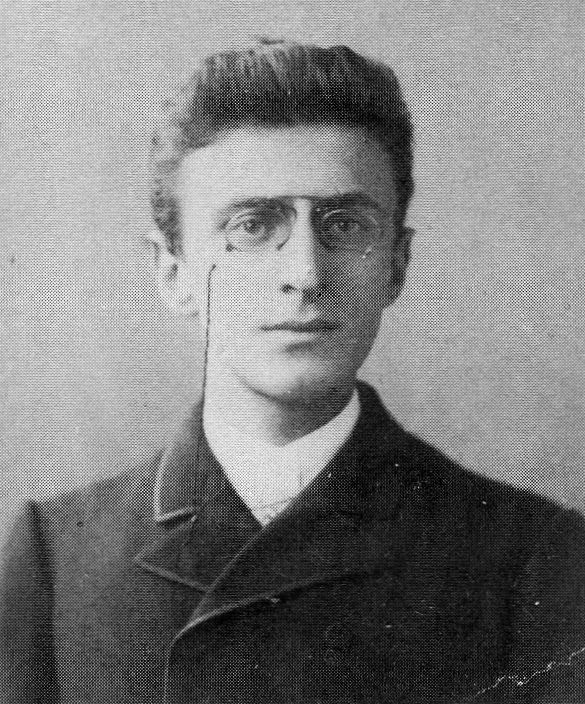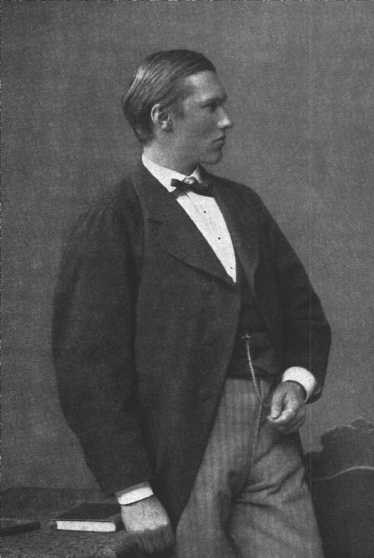|
Friedrich Klingner
Friedrich Klingner (7 July 1894 – 26 January 1968) was a German Classical Philologist. He worked at increasingly senior levels as a university professor, successively at the universities of Hamburg (1925–1930), Leipzig (1930–1947) and Munich (1947–1963). Viewed by admirers as one of the leading latinists of his generation, he advanced the study of Latin literature, producing important studies of Sallust, Virgil, Horace and Tibullus which continue to engage scholars. Biography Friedrich Klingner was born into a Protestant family in Dresden, where he also attended school. Albrecht Klingner (1865–1939), his father, worked as a teacher. His paternal grandfather had been a master shoemaker. Friedrich Klingner's mother, born Martha Pönitz (1865–1941), was also the child of a teacher. He began his university studies in Classical Philology at Tübingen in 1914 but was obliged to abandon this course after one term because of the outbreak of the First World War. He ... [...More Info...] [...Related Items...] OR: [Wikipedia] [Google] [Baidu] |
Dresden
Dresden (, ; Upper Saxon: ''Dräsdn''; wen, label=Upper Sorbian, Drježdźany) is the capital city of the German state of Saxony and its second most populous city, after Leipzig. It is the 12th most populous city of Germany, the fourth largest by area (after Berlin, Hamburg and Cologne), and the third most populous city in the area of former East Germany, after Berlin and Leipzig. Dresden's urban area comprises the towns of Freital, Pirna, Radebeul, Meissen, Coswig, Radeberg and Heidenau and has around 790,000 inhabitants. The Dresden metropolitan area has approximately 1.34 million inhabitants. Dresden is the second largest city on the River Elbe after Hamburg. Most of the city's population lives in the Elbe Valley, but a large, albeit very sparsely populated area of the city east of the Elbe lies in the West Lusatian Hill Country and Uplands (the westernmost part of the Sudetes) and thus in Lusatia. Many boroughs west of the Elbe lie in the foreland of the Ore Mounta ... [...More Info...] [...Related Items...] OR: [Wikipedia] [Google] [Baidu] |
Horace
Quintus Horatius Flaccus (; 8 December 65 – 27 November 8 BC), known in the English-speaking world as Horace (), was the leading Roman lyric poet during the time of Augustus (also known as Octavian). The rhetorician Quintilian regarded his ''Odes'' as just about the only Latin lyrics worth reading: "He can be lofty sometimes, yet he is also full of charm and grace, versatile in his figures, and felicitously daring in his choice of words."Quintilian 10.1.96. The only other lyrical poet Quintilian thought comparable with Horace was the now obscure poet/metrical theorist, Caesius Bassus (R. Tarrant, ''Ancient Receptions of Horace'', 280) Horace also crafted elegant hexameter verses (''Satires'' and '' Epistles'') and caustic iambic poetry ('' Epodes''). The hexameters are amusing yet serious works, friendly in tone, leading the ancient satirist Persius to comment: "as his friend laughs, Horace slyly puts his finger on his every fault; once let in, he plays about the heartstrin ... [...More Info...] [...Related Items...] OR: [Wikipedia] [Google] [Baidu] |
Otto Regenbogen
Otto Regenbogen (14 February 1891 – 8 November 1966) was a German linguist and scholar. Classical philologists Linguists from Germany 1891 births 1966 deaths People from Środa Śląska People from the Province of Silesia Members of the German Academy of Sciences at Berlin 20th-century linguists {{Germany-linguist-stub ... [...More Info...] [...Related Items...] OR: [Wikipedia] [Google] [Baidu] |
Werner Jaeger
Werner Wilhelm Jaeger (30 July 1888 – 19 October 1961) was a German-American classicist. Life Werner Wilhelm Jaeger was born in Lobberich, Rhenish Prussia in the German Empire. He attended school in Lobberich and at the Gymnasium Thomaeum in Kempen. Jaeger studied at the University of Marburg and University of Berlin. He received a Ph.D. from the latter in 1911 for a dissertation on the ''Metaphysics'' of Aristotle. His habilitation was on Nemesios of Emesa in 1914. At only 26 years old, Jaeger was called to the professorial chair in Greek at the University of Basel in Switzerland once held by Friedrich Nietzsche. One year later, he moved to a similar position at Kiel, and in 1921 he returned to Berlin, succeeding to Ulrich von Wilamowitz-Moellendorff. Jaeger remained in Berlin until 1936. That year, he emigrated to the United States because he was unhappy with the rise of Nazism. Jaeger expressed his veiled disapproval in 1937 with ''Humanistische Reden und Vortraege'' (''Hu ... [...More Info...] [...Related Items...] OR: [Wikipedia] [Google] [Baidu] |
Boethius
Anicius Manlius Severinus Boethius, commonly known as Boethius (; Latin: ''Boetius''; 480 – 524 AD), was a Roman senator, consul, ''magister officiorum'', historian, and philosopher of the Early Middle Ages. He was a central figure in the translation of the Greek classics into Latin, a precursor to the Scholastic movement, and, along with Cassiodorus, one of the two leading Christian scholars of the 6th century. The local cult of Boethius in the Diocese of Pavia was sanctioned by the Sacred Congregation of Rites in 1883, confirming the diocese's custom of honouring him on the 23 October. Boethius was born in Rome a few years after the collapse of the Western Roman Empire. A member of the Anicii family, he was orphaned following the family's sudden decline and was raised by Quintus Aurelius Memmius Symmachus, a later consul. After mastering both Latin and Greek in his youth, Boethius rose to prominence as a statesman during the Ostrogothic Kingdom: becoming a senator by a ... [...More Info...] [...Related Items...] OR: [Wikipedia] [Google] [Baidu] |
The Consolation Of Philosophy
''On the Consolation of Philosophy'' ('' la, De consolatione philosophiae'')'','' often titled as ''The Consolation of Philosophy'' or simply the ''Consolation,'' is a philosophy, philosophical work by the Roman statesman Boethius. Written in 523 Prison literature, while he was imprisoned by King Theodoric the Great, Theodoric, it is often described as the last great Western work of the Classical Period. Boethius's ''Consolation'' heavily influenced the philosophy of late antiquity, as well as Medieval and early Renaissance Christianity.Dante Alighieri, Dante placed Boethius the "last of the Romans and first of the Scholastics" among the doctors in his Paradise (see ''The Divine Comedy'') (see also below). Description ''On the Consolation of Philosophy'' was written in AD 523 during a one-year imprisonment Boethius served while awaiting trial—and eventual execution—for the alleged crime of treason under the Ostrogoths, Ostrogothic King Theodoric the Great. Boethius was at th ... [...More Info...] [...Related Items...] OR: [Wikipedia] [Google] [Baidu] |
Habilitation
Habilitation is the highest university degree, or the procedure by which it is achieved, in many European countries. The candidate fulfills a university's set criteria of excellence in research, teaching and further education, usually including a dissertation. The degree, abbreviated "Dr. habil." (Doctor habilitatus) or "PD" (for "Privatdozent"), is a qualification for professorship in those countries. The conferral is usually accompanied by a lecture to a colloquium as well as a public inaugural lecture. History and etymology The term ''habilitation'' is derived from the Medieval Latin , meaning "to make suitable, to fit", from Classical Latin "fit, proper, skillful". The degree developed in Germany in the seventeenth century (). Initially, habilitation was synonymous with "doctoral qualification". The term became synonymous with "post-doctoral qualification" in Germany in the 19th century "when holding a doctorate seemed no longer sufficient to guarantee a proficient transfer o ... [...More Info...] [...Related Items...] OR: [Wikipedia] [Google] [Baidu] |
Paul Friedländer (philologist)
Paul Friedländer (March 21, 1882, Berlin – December 10, 1968, Los Angeles) was a Germans, German philologist specializing in classical literature. He studied under Ulrich von Wilamowitz-Moellendorff at the University of Berlin. In 1911 he became a Privatdozent and from 1914 Associate Professor in Berlin, becoming a Professor at Marburg University (1920), University of Halle (1932). In 1935, the Nazi regime forced him to resign and in 1938 he was detained in a concentration camp. After his release, he came to the United States, where he taught first at and Johns Hopkins University (1939), as a lecturer and at UCLA (1940–1945 as a lecturer, 1945– as a professor). Works * ''Herakles: Sagengeschichtliche Untersuchungen.'' Berlin: Weidmann 1907 * ''Johannes von Gaza und Paulus Silentiarius: Kunstbeschreibungen justinianischer Zeit.'' Leipzig : Teubner 1912 (Nachdruck: Hildesheim 1969) * ''Der grosse Alcibiades Band 1/2 '' Bonn: Friedrich Cohen 1921/23 * ''Aufgaben der klassisc ... [...More Info...] [...Related Items...] OR: [Wikipedia] [Google] [Baidu] |
Eduard Norden
Eduard Norden (21 September 1868 – 13 July 1941) was a German classical philologist and historian of religion. When Norden received an honorary doctorate from Harvard, James Bryant Conant referred to him as "the most famous Latinist in the world".Andrew R. Dyckreviewof Wilt Aden Schröder, ''Der Altertumswissenschaftler Eduard Norden (1868-1941)''. ''Bryn Mawr Classical Review'' 2000.01.03. Life Eduard Norden was born in Emden in East Frisia, the son of a Jewish physician. Baptized in the Evangelical Church aged 17, he studied classics at Bonn and Berlin. After serving as assistant at Strassburg, in 1893 he became professor at Greifswald. In Greiswald he married Marie Schultze, the daughter of the city's mayor. After having published ''Die Antike Kunstprosa'' in 1899 he was appointed to the University of Breslau. The book on Vergil's Aeneid (1903) made him famous. At age 38 he was appointed to the chair of Latin in Berlin, the most prestigious position for a classicist in Germa ... [...More Info...] [...Related Items...] OR: [Wikipedia] [Google] [Baidu] |
Ulrich Von Wilamowitz-Moellendorff
Enno Friedrich Wichard Ulrich von Wilamowitz-Moellendorff (22 December 1848 – 25 September 1931) was a German classical philologist. Wilamowitz, as he is known in scholarly circles, was a renowned authority on Ancient Greece and its literature. Life Youth Wilamowitz-Moellendorff was born in Markowitz (Markowice), a small village near Hohensalza (Inowrocław), in the then Province of Posen (now part of the Kuyavian-Pomeranian Voivodeship), to a Germanized family of distant Polish ancestry. His father, a Prussian Junker, was Arnold Wilamowitz, of Szlachta origin and using the Ogończyk coat of arms, while his mother was Ulrika, née Calbo. The couple settled in a small manor confiscated from a local noble in 1836. The Prussian part of their name, von Moellendorf, was acquired in 1813, when Prussian field marshal Wichard Joachim Heinrich von Möllendorf adopted Ulrich's ancestors. Wilamowitz, a third child, grew up in East Prussia. In 1867 Wilamowitz passed his ''Abitur'' ... [...More Info...] [...Related Items...] OR: [Wikipedia] [Google] [Baidu] |
First World War
World War I (28 July 1914 11 November 1918), often abbreviated as WWI, was one of the deadliest global conflicts in history. Belligerents included much of Europe, the Russian Empire, the United States, and the Ottoman Empire, with fighting occurring throughout Europe, the Middle East, Africa, the Pacific, and parts of Asia. An estimated 9 million soldiers were killed in combat, plus another 23 million wounded, while 5 million civilians died as a result of military action, hunger, and disease. Millions more died in genocides within the Ottoman Empire and in the 1918 influenza pandemic, which was exacerbated by the movement of combatants during the war. Prior to 1914, the European great powers were divided between the Triple Entente (comprising France, Russia, and Britain) and the Triple Alliance (containing Germany, Austria-Hungary, and Italy). Tensions in the Balkans came to a head on 28 June 1914, following the assassination of Archduke Franz Ferdina ... [...More Info...] [...Related Items...] OR: [Wikipedia] [Google] [Baidu] |




